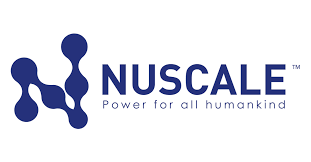A lot of new technology comes from university research programs that spin off discoveries to private companies for commercialization. One major example would be NuScale which was founded in 2007 based on research at Oregon State University that started in 2002. NuScale was founded to develop, construct and sell small modular reactors (SMRs). In 2011, NuScale sold a majority stake in their company to a Texas energy services company named Fluor Corporation for thirty million dollars.
NuScale has raised more than one billion dollars in private and government funding since 2011. It will still need billions of dollars more to construct its first power plant. Fluor has stated that it is seeking ways to raise some of the needed funding by selling part of the stake that it purchased from NuScale.
Guggenheim Partners (GP) is the NuScale financial advisor. GP told a nuclear power conference on Thursday that their client has decided to go public by seeking a deal with a publicly traded investment fund which is known as a special purpose acquisition company (SPAC). This was reported in the investment publication S&P Global. It is not clear whether the funding from a SPAC deal would satisfy NuScale’s funding needs. It may be necessary seek additional capital in other ways. NuScale has declined to comment on the report in S&P Global.
SPACs are publicly traded investment funds. They were created to merge with privately held companies as a mechanism to help move them to the public market. They have become a popular way for businesses to begin trading on Wall Street without the expense and extensive regulatory process associated with a conventional IPO.
Diane Hughes is the NuScale’s communications vice president. She said, “As we have previously stated, NuScale is in the process of evaluating strategic options to raise additional capital and accelerate the commercialization of NuScale’s groundbreaking small modular reactor technology. We have no update at this time.”
NuScale has named its modular design VOYGR this month. It has been engineered to give utilities the option of building a small, relatively inexpensive plant or to scale up with several modules to construct a larger facility. NuScale states that its design enables plants to shut down on their own if they lose external power in a disaster. The company says that their reactors are safer than conventional designs.
NuScale employs four hundred and fifty people which includes twenty-three at their Portland headquarters and nearly three hundred in Corvallis. Many of these employees are working remotely during the Covid pandemic.
Climate change has stimulated more interest in nuclear power recently. Nuclear power does generate radioactive waste but does not emit carbon during operations. However, a great deal of carbon is generated by construction of power plants; mining, refining, and transporting of uranium; and storing toxic and radioactive waste.
Utilities around the globe have shown interest in NuScale’s technology. NuScale received design approval from the Nuclear Regulatory Commission last year. NuScale requires other levels of federal approval before it can be constructed.
